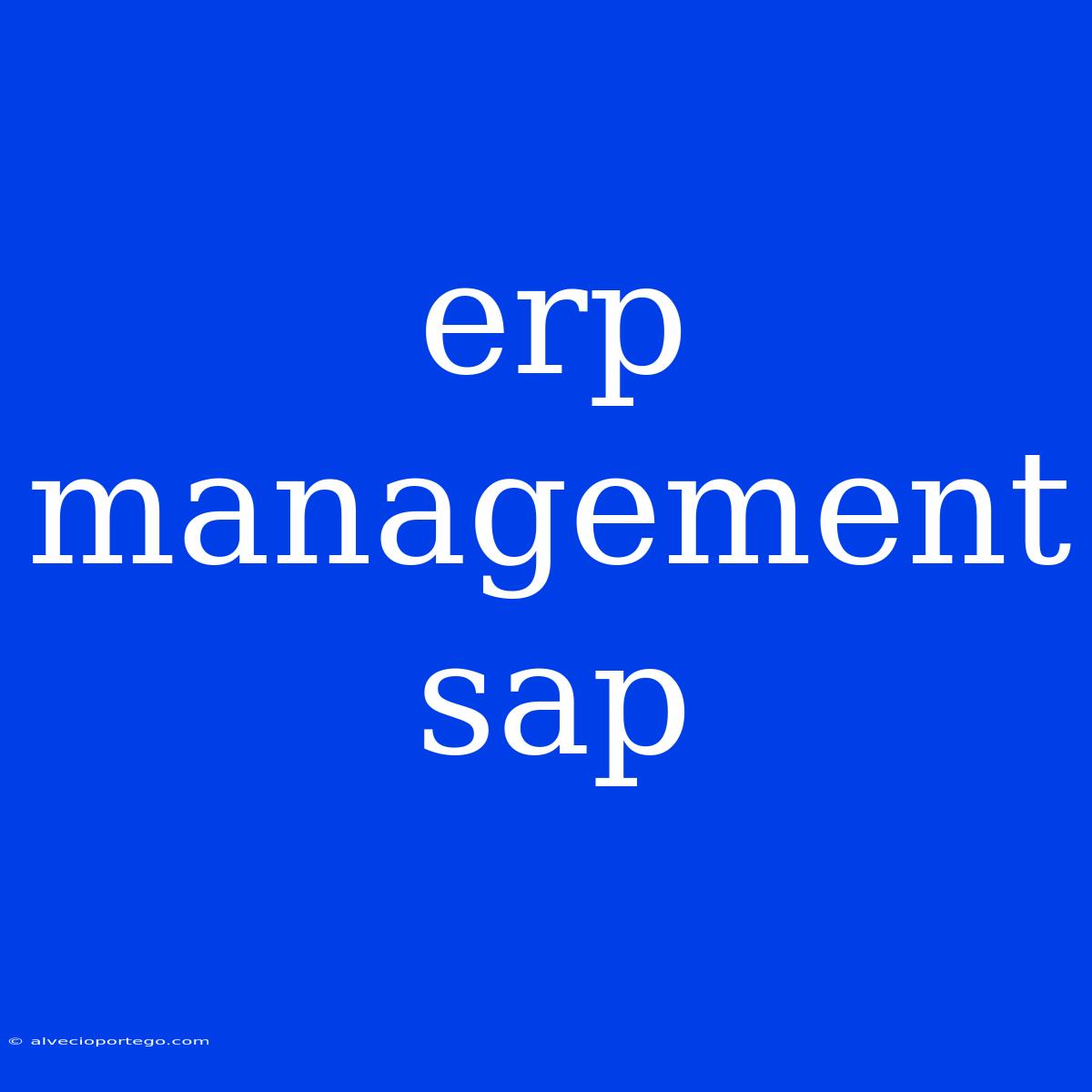ERP Management with SAP: Streamlining Your Business Operations
Enterprise Resource Planning (ERP) software is a cornerstone of modern business management, and SAP, a global leader in ERP solutions, offers a comprehensive suite of tools to optimize every aspect of your organization.
What is SAP?
SAP is a German multinational software corporation that develops enterprise resource planning (ERP) software—applications that help businesses manage their day-to-day operations. SAP solutions are used by companies of all sizes and industries, from small businesses to large multinational corporations.
Why Choose SAP for ERP Management?
SAP ERP offers numerous benefits for businesses, including:
- Improved Efficiency: By integrating various business processes, SAP streamlines workflows, eliminates redundancies, and increases operational efficiency.
- Enhanced Visibility: Gain real-time insights into your data across departments, enabling informed decision-making and proactive problem-solving.
- Centralized Data Management: SAP consolidates data from diverse sources, providing a single source of truth for your business.
- Scalability and Flexibility: SAP solutions are designed to grow with your business, adapting to changing needs and expanding operations.
- Industry-Specific Solutions: SAP offers specialized solutions tailored to specific industries, addressing unique requirements and best practices.
- Strong Global Presence: With a vast network of partners and support teams worldwide, SAP provides reliable global support and expertise.
Key Components of SAP ERP
SAP ERP encompasses various modules catering to different business functions, including:
- Financial Accounting: Manage financial transactions, generate reports, and ensure compliance with regulations.
- Materials Management: Optimize inventory, purchasing, and warehouse management.
- Sales and Distribution: Manage sales orders, deliveries, and customer relationships.
- Production Planning: Plan and manage production processes, including scheduling and resource allocation.
- Human Capital Management: Manage employee data, payroll, and talent acquisition.
Implementing SAP ERP
Implementing SAP ERP is a complex process requiring careful planning, execution, and ongoing support.
Steps Involved:
- Needs Assessment: Define your business requirements and identify areas where SAP can optimize operations.
- Solution Design: Select the appropriate SAP modules and customize them to meet your specific needs.
- Implementation: Install, configure, and deploy SAP solutions within your organization.
- Testing and Training: Thoroughly test the implementation and train your employees on using the new system.
- Go-Live and Support: Transition to the new system and provide ongoing support to ensure its smooth operation.
Conclusion
SAP ERP offers a robust and comprehensive solution for managing your business operations. By leveraging its features and functionalities, organizations can streamline workflows, gain valuable insights, and achieve significant improvements in efficiency, profitability, and overall performance.

